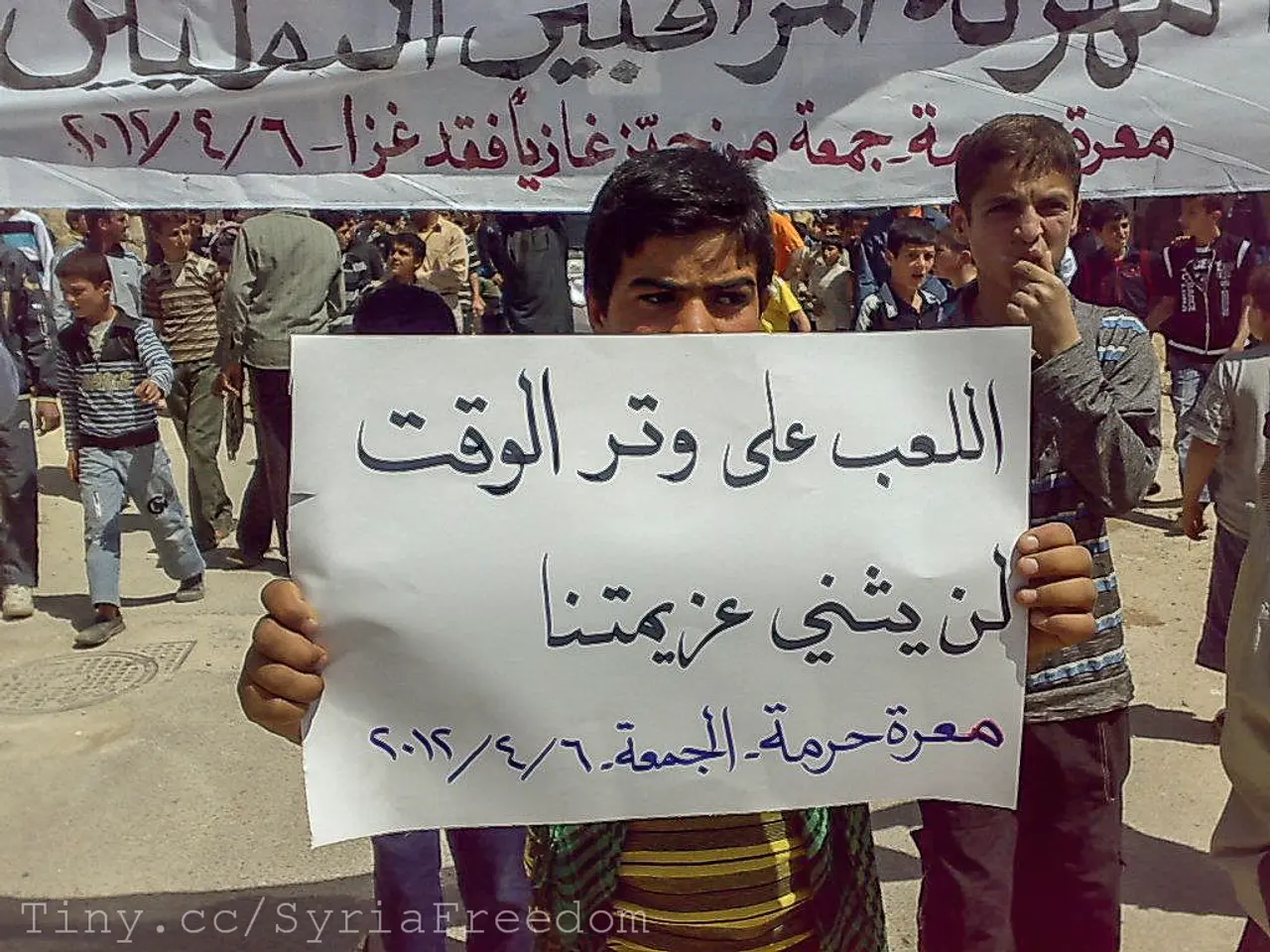Initial evaluation: Decrease in attacks directed towards refugees
Crime Trends Against Asylum Seekers and Refugees in Germany
A recent analysis of crime statistics in Germany reveals a complex picture of hate crimes against asylum seekers and refugees. While there has been a significant increase in reported anti-Muslim hate crimes, there has been a decline in crimes targeting asylum seekers and refugees outside of refugee accommodations.
The rise in far-right extremism and Islamophobia has created a more hostile environment for Muslim asylum seekers and refugees. High-profile violent incidents and daily hate crimes against visibly Muslim individuals have contributed to this trend.
On the other hand, the decline in crimes against asylum seekers outside their accommodations may be attributed to improved protection, monitoring, or reduced incidents in certain contexts. However, it's important to note that unreported crimes against this group are likely under-represented due to fear among asylum seekers, access to justice barriers, or mistrust of authorities.
The Ukrainian refugee influx has introduced new dynamics that affect both the conditions of asylum seekers and public/media responses in Germany. Organizations like the German alliance CLAIM have been actively monitoring hate crimes, leading to more visible data on reported incidents.
In the first half of 2025, the majority of documented crimes against asylum seekers and refugees outside of refugee accommodations were cases of property damage, insults, and incitement. Seven demonstrations related to immigration or asylum were held nationwide in the second quarter, four of which were organized or dominated by right-wing extremists.
The Left Party requested a police overview, which shows that in the first six months of 2025, there were 1,236 crimes against asylum seekers and refugees outside of refugee accommodations. This number is a decrease from the same period in 2024.
Despite this decline, racist harassment, threats, and physical assaults remain part of the daily life of people seeking refuge in Germany. Many of these crimes also involved the use of symbols of unconstitutional organizations or acts of violence.
The Federal Office for Migration and Refugees attributes the decrease to stationary controls at all German land borders, measures by Balkan countries to reduce irregular migration, and the changed situation in Syria. However, the preliminary police assessment expects the number of crimes to potentially increase due to unreported incidents or delayed revelation of motives.
Asylum issues have been controversially discussed in the Bundestag in the first half of 2024 and 2025, and the number of first-time asylum applications in Germany in the first half of 2025 is almost 50% less than in the same period last year. The ordered rejections of asylum seekers at the German land borders were a major focus during the 2025 federal election campaign and after the swearing-in of the new black-red federal government.
In conclusion, the increase in unreported crimes against asylum seekers and refugees is influenced by far-right extremism, Islamophobia, disparities in refugee groups, and barriers to crime reporting. Reliable statistics on unreported crimes remain limited, but concerns persist about the true scale of violence and discrimination these vulnerable groups face.
- The increase in unreported crimes against asylum seekers and refugees points to the ongoing influence of far-right extremism and Islamophobia in German politics, contributing to a hostile environment for vulnerable groups.
- The discussion surrounding asylum issues in the German Bundestag, as well as the change in the number of first-time asylum applications, highlights the cross-section between general-news, politics, and crime-and-justice in shaping the conditions for refugees in Germany.







